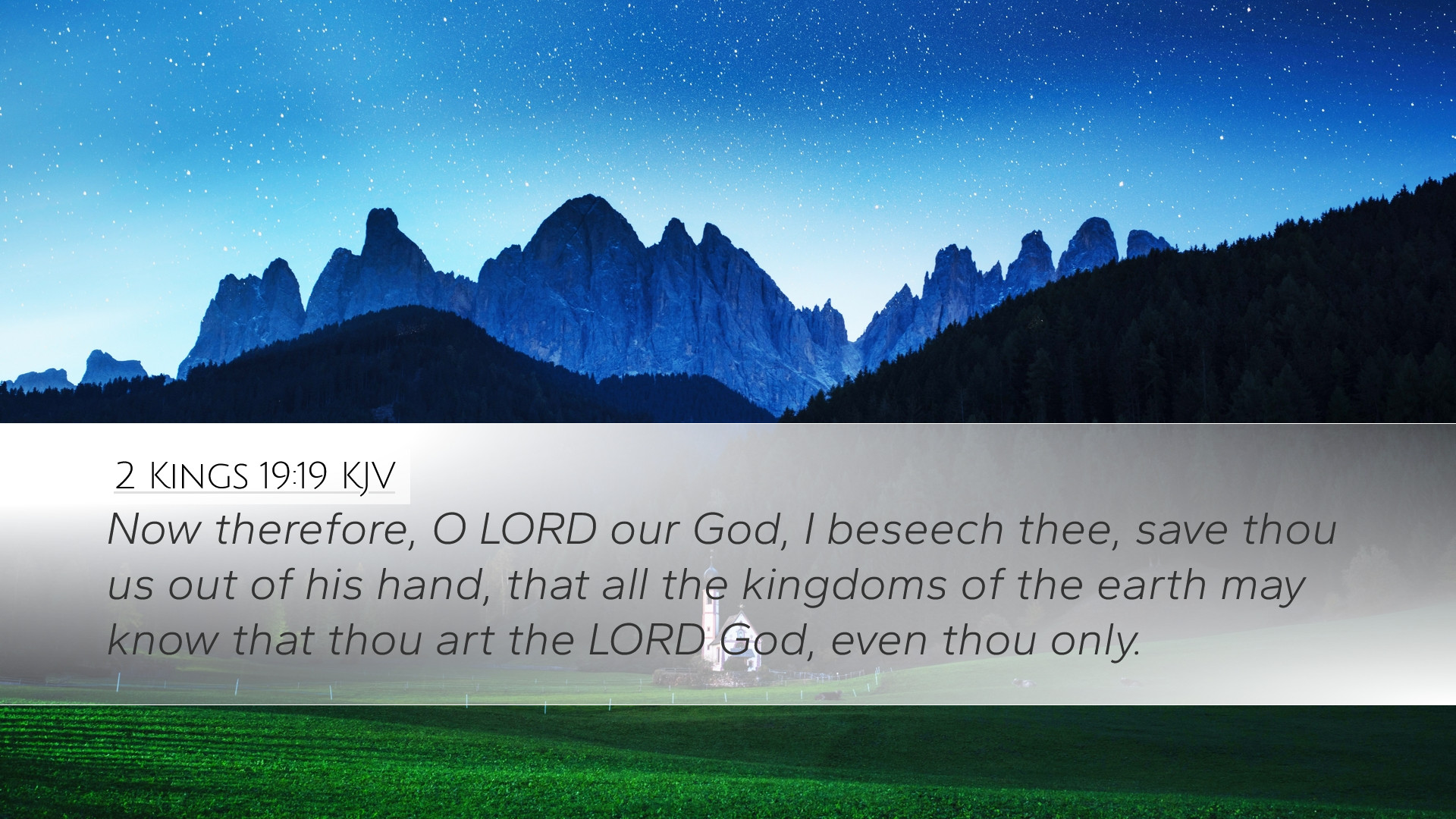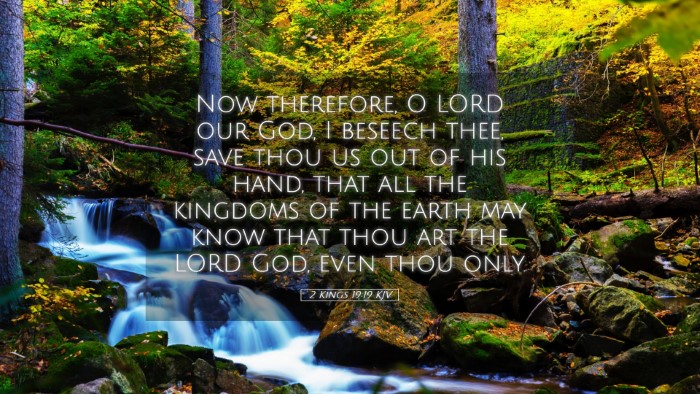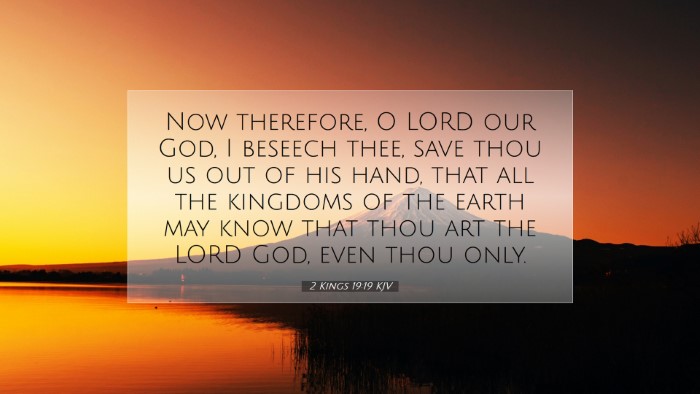Commentary on 2 Kings 19:19
In 2 Kings 19:19, we witness a profound prayer that reveals the heart of King Hezekiah as he turns to the Lord amidst a dire situation. This verse states:
"Now, O Lord our God, I beseech thee, save thou us out of his hand, that all the kingdoms of the earth may know that thou art the Lord God, even thou only."
Historical Context
This invocation comes during a pivotal moment when the Assyrian king, Sennacherib, has aggressively besieged Jerusalem. Understanding the threat posed by Sennacherib provides critical context to Hezekiah's plea. The Assyrian empire had already devastated many territories, and Jerusalem seemed next on their list. Hezekiah's response is emblematic of a leader relying on divine intervention rather than military might.
Thematic Insights
Several themes emerge from this supplication:
- The Nature of God: Hezekiah acknowledges God as the Lord of all. This dual emphasis on His sovereignty and His power underscores a deep understanding of God’s nature.
- Divine Sovereignty: The plea for deliverance is rooted not just in personal or national concern but in a desire for God’s glory to be manifested among the nations.
- Faith in Prayer: Hezekiah's earnest request demonstrates a model of desperate yet faithful prayer, appealing to God's character and His past actions in salvation.
Insights from Commentators
Matthew Henry
Matthew Henry highlights the earnestness of Hezekiah's prayer, noting that it embodies both humility and faith. He remarks on the specificity of Hezekiah's request for salvation, indicating that it reflects a dependency on God alone. Henry emphasizes that true prayer must glorify God and affirm His exclusive sovereignty and power. He adds that Hezekiah's recognition of the ultimate purpose behind his plea—that the kingdoms might know the one true God—is fundamental to biblical faith and witness.
Albert Barnes
Albert Barnes underscores the idea of God’s uniqueness in this prayer. He notes that Hezekiah does not merely seek relief from danger but desires a demonstration of God’s supremacy over all other powers. Barnes explores the implications of this request, suggesting it serves as a reminder to the faithful that God's provident hand is at work in the affairs of nations. He articulates that the vindication of God’s name and glory should be a primary motivation for believers when they call upon Him in times of need.
Adam Clarke
Adam Clarke delves into the theological ramifications of Hezekiah’s supplication. He asserts that the king’s plea exemplifies a profound understanding of God's relationship with His people. Clarke points out the historical significance of the Assyrian threat and how it served to bring Hezekiah and the people back to genuine reliance on God. He also emphasizes the importance of this moment as a pivotal transition for Israel back to an authentic faith. Clarke's insights remind us that God often uses crises to refine and define the faith of His followers.
Theological Applications
As pastors, students, theologians, and Bible scholars reflect on this verse, several applications and theological principles emerge:
- God as Deliverer: The first and foremost takeaway is that God is the ultimate deliverer. Hezekiah's prayer encourages us to approach God in our times of struggle, expecting His intervention.
- God’s Glory Central to Our Requests: Our requests to God should align with His glory being revealed. Just as Hezekiah asked for deliverance so that nations might know God, our prayers should reflect a desire for God’s name to be honored.
- The Power of Individual Prayer: Hezekiah's personal plea serves as an inspirational model for individual prayer life. It illustrates that no matter how dire the situation, one can approach God boldly but humbly.
- Trust in God’s Sovereignty: In an age where fear and uncertainty abound, this verse encourages us to trust in God's governance over nations and our lives. He not only hears our prayers but acts in light of His purposes.
Conclusion
2 Kings 19:19 stands as a beacon of faith and testimony, showing us how to respond in dire circumstances with prayer that seeks God's glory. Reflecting upon the insights from Henry, Barnes, and Clarke encourages a deeper engagement with the text, inspiring both personal and communal faith. The call to recognize God’s sovereignty in our supplications ultimately invites us to believe in His ability to operate in miraculous ways within our lives and the world around us.


